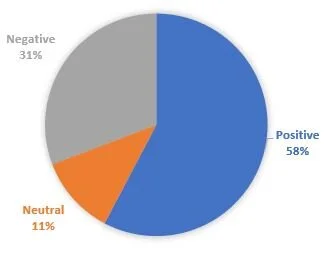As members and friends of the CFA and RedLAC networks, you are cordially invited to join a virtual panel discussion on the investment outlook for Environmental Funds in the time of COVID-19.
July 21st, 11AM - 12PM EDT
RSVP below
In this moderated discussion, investment advisors from UBS, FINAD GmbH, and JP Morgan Chase will share their perspectives on the investment outlook for Environmental Funds (Conservation Trust Funds) in the context of the current COVID-19 global pandemic.
Panelists:
Andrew B. Peake, CFA
Managing Director – UBS International, New York
Andrew joined UBS International in 2013 with over 30 years of experience in financial services, primarily in private wealth management, specializing in managed investment portfolios for ultra-high net worth clients and institutions. His regional focus includes China, Europe, Latin America and the United States.
He began his career in 1989 in various portfolio management positions at Offitbank and Brown Brothers Harriman & Co. In 1994, Andrew was recruited by JP Morgan as a Senior Portfolio Manager, where he was responsible for $2B in discretionary global balanced portfolios. He was also a member of the Trust and Investment Committee for Morgan Guaranty Trust Company of the Bahamas. In 1998 Andrew was recruited by Morgan Stanley Private Wealth Management, which deals exclusively with that firm's ultra-high net worth clients.
Andrew has two degrees from the University of Pennsylvania - a BA Magna Cum Laude in Chinese History and East Asian Studies and a MA in East Asian Studies. His Master’s thesis analyzed and discussed the future of Hong Kong. He also earned a MBA in Finance from New York University and the Chartered Financial Analyst designation. Andrew is fluent in Mandarin Chinese and has lived, worked and traveled extensively throughout Europe, Asia and Latin America. He is an avid sports enthusiast and competed for a place in the 1980 US Olympic Hockey Team. Andrew is actively involved in mentorship programs for students from Asia and is often asked to speak on cultural matters pertaining to China and US business relations. Additionally, Andrew serves on the Financial Advisor Advisory Council a group of Financial Advisors that represent the 6,000 Financial Advisors with senior management in the US.
Christian Tury
Chief Investment Officer, Managing Director — FINAD GmbH, Vienna
As a manager in a multi family office, we are all-rounders with a very in-depth understanding of a wide range of financial operations. Assuming responsibility is an obligation, which is why we also invest lots of time in our younger colleagues.
I studied sociology and political science at the University of Vienna, and European Studies at the Danube University in Krems. I always wanted to work in the financial sector. I was approved as a student of business studies at the Vienna University of Economics and Business when I encountered Warren Buffet in Omaha, Nebraska, for the first time. A speculative application to Chase Manhattan Bank made the dream reality.
Juan Etinger
Managing Director, Global Head of Institutional Portfolio Solutions, J.P. Morgan
Juan Etinger is a Managing Director and Global Head of Institutional Portfolio Solutions. The group focuses on designing and managing single and multi-asset portfolios for endowments, foundations and institutional families.
Previously, Mr. Etinger was Senior Portfolio Manager overseeing the firm’s offshore Global Access Portfolios, a suite of global multi-asset investment funds that combine traditional asset classes with alternatives, structured investments and portfolio insurance strategies. Additionally, Mr. Etinger served as member of the investment team for the J.P. Morgan Access UCITS Funds, a multi-asset family of open-ended, offshore mutual funds tailored for international clients.
Mr. Etinger was a member of the J.P. Morgan Investment Strategy Team for over six years, responsible for development of investment strategy, including tactical and strategic asset allocation, for over $600 billion in client assets. In addition, he was a member of the Hedge Fund Advisory Council and due diligence’s Investment Review Committee.
Mr. Etinger holds a Master of Business Administration from the University of Chicago Graduate School of Business (Booth), where he graduated with honors with a concentration in Quantitative Finance and Entrepreneurship. He also holds a bachelor’s and master’s degrees in Industrial Engineering from the University of Buenos Aires. He lives in New York with his wife and three children.
Sponsored by the Environmental Funds Working Group
A partner event with:
















